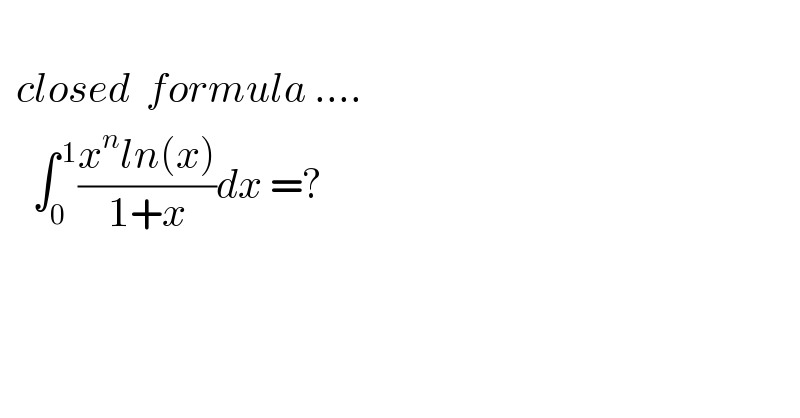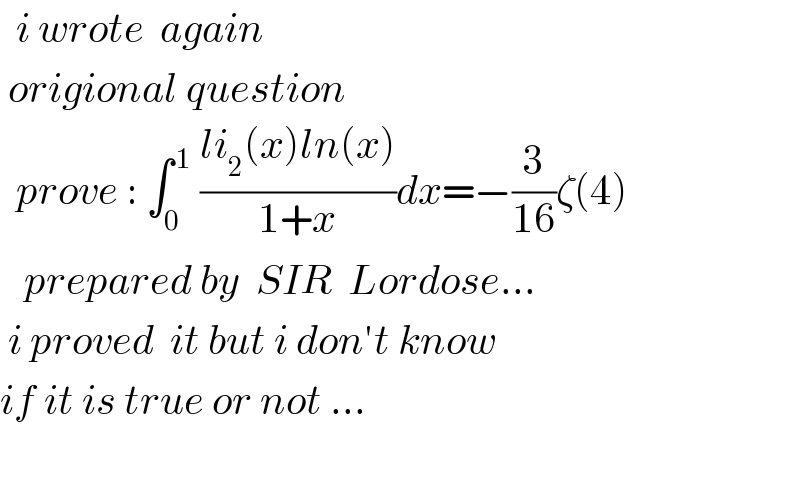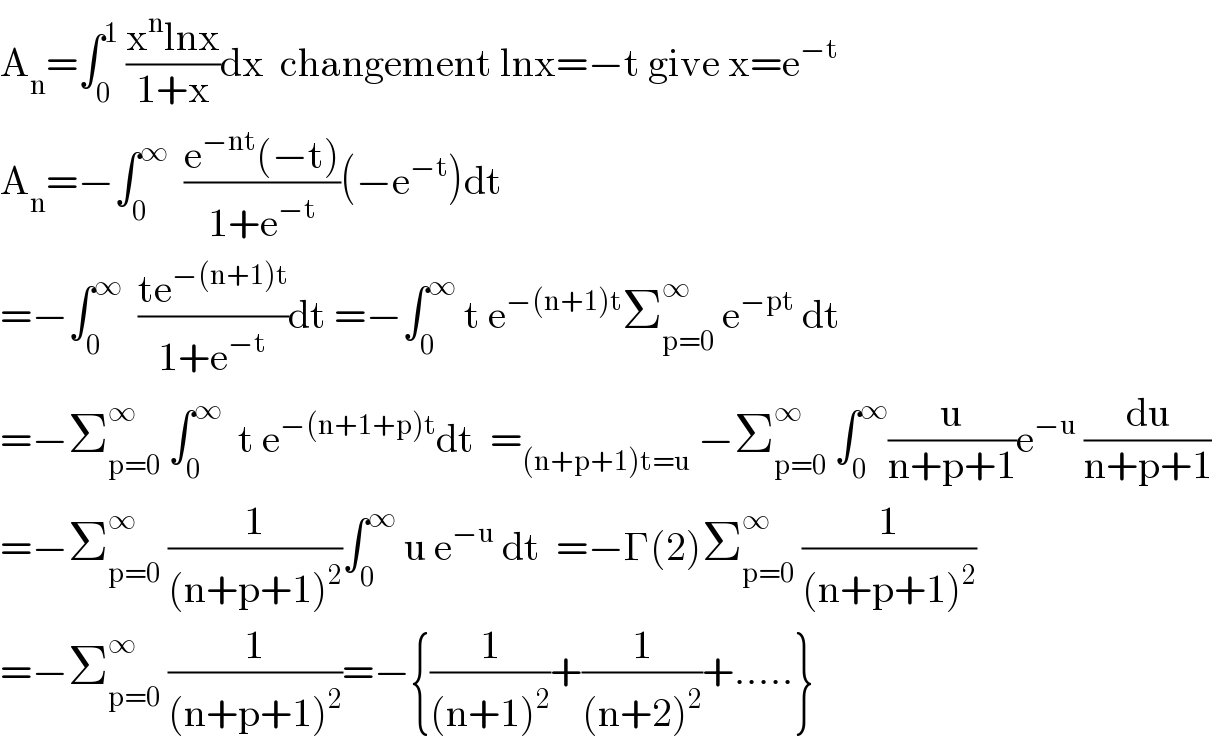
Question and Answers Forum
Question Number 126139 by mnjuly1970 last updated on 17/Dec/20

Commented by Dwaipayan Shikari last updated on 17/Dec/20
![Σ_(k=0) ^∞ (−1)^n ∫_0 ^1 x^n x^k log(x)dx =Σ_(k=0) ^∞ (−1)^k [log(x)(x^(n+k+1) /(n+k+1))]_0 ^1 −∫_0 ^1 (x^(n+k) /((n+k+1)))dx =Σ_(k=0) ^∞ (−1)^(k+1) (1/((n+k+1)^2 ))=−(1/((n+1+0)^2 ))+(1/((n+1+1)^2 ))−(1/((n+3)^2 ))+..=S (1/((n+1)^2 ))+(1/((n+2)^2 ))+(1/((n+3)^2 ))+..=ζ(2,n+1) S+ζ(2,n+1)=2((1/((n+2)^2 ))+(1/((n+4)^2 ))+....) S+ζ(2,n)=(1/2)Σ_(k=1) ^∞ (1/(((n/2)+k)^2 ))=(1/2)ζ(2,(n/2))−(2/n^2 ) S=(1/2)ζ(2,(n/2))−ζ(2,n+1)−(2/n^2 ) Note:Σ_(n=0) ^∞ (1/((n+k)^s ))=ζ(s,k) (Hurwitz zeta)](Q126142.png)
Commented by mnjuly1970 last updated on 17/Dec/20

Commented by Dwaipayan Shikari last updated on 17/Dec/20

Commented by mnjuly1970 last updated on 17/Dec/20

Answered by mathmax by abdo last updated on 17/Dec/20

